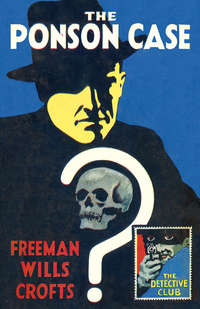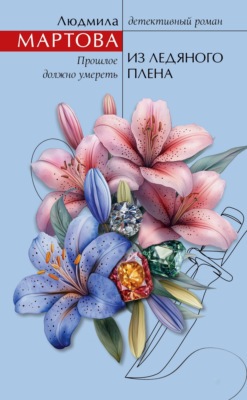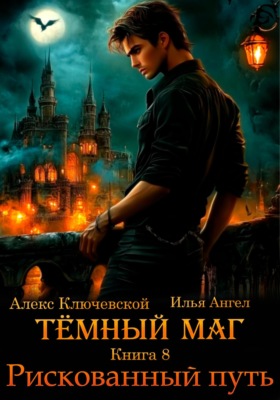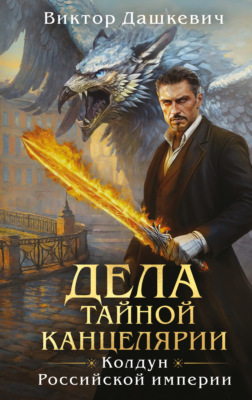Czytaj książkę: «The Ponson Case»


An imprint of HarperCollinsPublishers Ltd
1 London Bridge Street
London SE1 9GF
First published in Great Britain by W. Collins Sons & Co. Ltd 1921
Published by The Detective Story Club Ltd 1932
Copyright © Estate of Freeman Wills Crofts 1921
Introduction © Dolores Gordon-Smith 2016
Cover design © HarperCollinsPublishers Ltd 1932, 2016
A catalogue copy of this book is available from the British Library.
This novel is entirely a work of fiction. The names, characters and incidents portrayed in it are the work of the author’s imagination. Any resemblance to actual persons, living or dead, events or localities is entirely coincidental.
All rights reserved under International and Pan-American Copyright Conventions. By payment of the required fees, you have been granted the non-exclusive, non-transferable right to access and read the text of this e-book on screen. No part of this text may be reproduced, transmitted, down-loaded, decompiled, reverse engineered, or stored in or introduced into any information storage and retrieval system, in any form or by any means, whether electronic or mechanical, now known or hereinafter invented, without the express written permission of HarperCollins.
Source ISBN: 9780008159290
Ebook Edition © January 2016 ISBN: 9780008159306
Version: 2015-10-29
Contents
Cover
Title Page
Copyright
Introduction
Chapter I: MYSTERY AT LUCE MANOR
Chapter II: A SINISTER SUGGESTION
Chapter III: HOAXED?
Chapter IV: INSPECTOR TANNER GROWS SUSPICIOUS
Chapter V: INSPECTOR TANNER BECOMES CONVINCED
Chapter VI: WHAT COSGROVE HAD TO TELL
Chapter VII: COSGROVE’S TRIP NORTH
Chapter VIII: TANNER FINDS HIMSELF DUPED
Chapter IX: LOIS DREW TAKES A HAND
Chapter X: A WOMAN’S WIT
Chapter XI: A FRESH START
Chapter XII: A STERN CHASE
Chapter XIII: BLACKMAIL?
Chapter XIV: A DRAMATIC DISCOVERY
Chapter XV: IN THE LUCE MANOR BOATHOUSE
Chapter XVI: CONCLUSION
The Detective Story Club
About the Publisher
INTRODUCTION
THE PONSON CASE, first published in 1921, is Freeman Wills Crofts’ second book. Crofts had blazed onto the scene the previous year with his debut novel, The Cask. Far outselling Agatha Christie’s first novel, The Mysterious Affair at Styles, published in the same year, Crofts went on to become a cornerstone of what we now regard as the Golden Age of detective fiction, the period between the two world wars.
Together with his great contemporaries, Agatha Christie and Dorothy L. Sayers, Crofts could not only tell an engaging and entertaining story, but paid the reader the compliment of assuming they were intelligent enough to engage with the logical working out of the mystery.
Crofts respected his readers; he always plays fair (an important quality in Golden Age crime) so that the reader has the same information as the detective. We, the reader, along with the detective, are invited to find a solution to the mystery. An important point, which demonstrates the quality of Crofts’ writing, is that the solution is always credible. Not for Crofts, the ‘infernal ingenuity’ that P. G. Wodehouse, a devoted mystery reader, complains of in his excellent essay, ‘Thrillers’. Instead the criminal, although ingenious, always acts in a way which makes perfect sense
His meticulous approach to plotting is recalled in a letter written by F. T. Smith, Crofts’ editor at Collins in the 1920s, to the Chairman of the company, Billy Collins. Although the letter was written in 1973, Crofts evidently made a lasting impression on Fred. The book in question isn’t named, but it’s a fair assumption that he is discussing The Ponson Case:
‘In Crofts’ case he loved criticism. He always wanted to come in and devote about three hours to a detailed discussion. How could he possibly require this? Well, I remember one case in which the body of the victim was discovered washed ashore on the banks of a river. I innocently had queried the time of the discovery and made a pencilled note on the margin. Crofts arrived with a suitcase for a discussion. He produced three large Ordnance Survey maps showing the course of the river, a very full county history, two reports on flooding in the county, one report on the effect of the current on the river banks and lastly a batch of correspondence with a medical officer of health showing how to tell how long a body had been in the water. Now all this trouble to prove that the body thrown into this particular river at a certain point would be washed ashore at another place at a more or less definite time.’
Freeman Wills Crofts was an Irishman, born in Dublin in 1879. He was named after his father, a British army doctor, who died in Honduras before his son was born. His mother married again when Crofts was three and the family moved to the small village of Gilford, Ulster, where his stepfather, Reverend Harding, was the vicar. Gilford village had been founded in 1641 by a Captain John Magill. Crofts was later to borrow Captain Magill’s name for one of his best books, Sir John Magill’s Last Journey, which draws heavily on his Ulster background.
When Crofts was eighteen, he was apprenticed to his uncle, Berkley Dean Wise, the Chief Engineer of the Belfast and Northern Counties Railway. An outstanding civil engineer, Berkley Dean Wise made a huge contribution to railway travel, boosting tourism in and to Northern Ireland, and the young Crofts flourished under his care.
Railways, in that great age of steam, enthralled Crofts, as they have captured the imagination of so many others. Hardworking, creative and intelligent, he rose to become Chief Assistant Engineer. One of his projects which still stands today is the massive ten arch Bleach Green viaduct.
Crofts, however, was always dogged by poor health. It was during a long illness in 1919 that he wrote The Cask and, granted his background, it’s hardly surprising that he chose to make his detective heroes professional policemen.
To a modern reader this may seem an obvious decision, but in 1920, in the shadow of Sherlock Holmes, the gifted amateur was at his (and occasionally her) height of popularity. The sole purpose of a policeman in many Golden Age mysteries is to provide a foil to show the almost supernatural brilliance of the amateur. These are often great fun to read, but Crofts, the trained railway engineer, had a deep respect for the hard work a profession entails
In his fifth book, Inspector French’s Greatest Case, Crofts went on to to create his best known character, Inspector Joseph French of Scotland Yard. Fair minded, decent and achieving his results through sheer dogged persistence, Inspector Tanner of The Ponson Case is, in many ways, a blueprint for French.
‘There were already plenty of “character” detectives,’ wrote Crofts in his essay ‘Meet Inspector French’, ‘the lineal descendants, most of them, of the great Sherlock. I tried to make French a perfectly ordinary man, without peculiarities or mannerisms. Of course he had to have some qualities, but they were to be the ordinary qualities of ordinary fairly successful men. He was to have thoroughness and perseverance as well as a reasonable amount of intelligence, just the qualities which make for moderate success in any walk of life.’
This accent on the ‘ordinary’ has led to the charge that Crofts is a ‘humdrum’ writer and his policeman heroes are humdrum (aka boring) characters. This is unfair. It would be far better and a much truer assessment of his books to see his detectives as Everyman characters.
‘French,’ he wrote, to quote once more from ‘Meet Inspector French’, ‘does not leap to his conclusions by brilliant intuition. He begins a case by going and looking for information in those places in which he thinks information is most likely to be found. When he gets the information he swots over it until he grinds out some sort of theory to account for the facts. Very often this turns out to be wrong, but if so, he simply tries again until he thinks of something better.’
If this sounds daunting, don’t worry—it isn’t. One of the great qualities of Crofts’ writing is that it is very enjoyable to read. He loved travel and used a great variety of locations in his books. All of Crofts’ heroes have an engaging interest in the locations they find themselves, from the round Britain cruise of Fatal Venture to the construction of the A3, lovingly described in The Hog’s Back Mystery. In The Ponson Case, for instance, Inspector Tanner ends up in Portugal, where his insular British prejudices are overthrown by the sight of the glittering city of Lisbon.
Crofts doesn’t, thank goodness, go over the same ground again and again, but leads us forward through the story as new facts are discovered and fresh discoveries are made. His style is simple, easy and accessible. There aren’t any literary fireworks but he tells the story in ordinary, everyday language.
In 1929 Crofts, who was always dogged by ill health, retired from the railways. This was made possible by the great success of his books. Together with his wife, Mary, he moved from Northern Ireland to Blackheath in Surrey. He had always loved the countryside, as is evident from the opening of The Ponson Case. ‘A fine old house, finely set on the summit of a low hill and surrounded by wonderful old trees, it seemed to stand symbolical of the peace, security and solid comfort…’
The peace doesn’t last long.
DOLORES GORDON-SMITH
July 2015
CHAPTER I
MYSTERY AT LUCE MANOR
THE dying sun of a July evening shone rosily on the old Georgian house of Luce Manor, mellowing the cold grey of the masonry, bringing out with soft shadow its cornices and mouldings, and softening and blurring its hard outlines. A fine old house, finely set on the summit of a low hill, and surrounded by wonderful old trees, it seemed to stand symbolical of the peace, security, and solid comfort of upper-class rural England.
This impression was not lessened by the outlook from the terrace in front. Below, and already shadowed by the trees beyond from the sun’s rays, was a small Dutch garden, its walks and beds showing up faintly in the gathering gloom. To the right the drive swept off in an easy curve until it disappeared between two rows of beeches, celebrated in all the county round for their age and size. At the side of the house, and reached through a rose pergola, was the walled English garden, with its masses of colour, its laden bushes, and its range of glass houses. In front, beyond the lawn, whose oaks and elms stood singly like sentinels guarding the house, the country rolled away to a line of distant hills, while to the left, an opening in the trees gave a glimpse of the Cranshaw River, with behind a near horizon of tree-covered slopes.
Within, in a large room panelled in black oak, the master of the house sat at dinner. He was alone, the only other members of the household, his wife and his daughter Enid, being from home on a visit. Sir William Ponson, a self-made man, had retired from business some ten years before our story opens and, selling his interest in the large ironworks of which he was head, had bought Luce Manor and settled down to end his days in the rôle of a country squire. Though obviously a nouveau riche, and still retaining the somewhat brusque manners of his hard, northern upbringing, he had nevertheless been received with more cordiality into the local society than usually happens in such cases. For Sir William, though he had thus risen in the social scale, remained a simple, honourable, kindly old man, a little headstrong and short tempered perhaps, but anxious to be just, and quick to apologise if he found himself in the wrong.
It was seldom that Sir William partook of a solitary meal. He was fond of society, and kept open house for all who cared to visit him. He had rented some shooting, and though the fishing in the river was not good, it at least was fishing. The tennis courts were always in perfect condition, and there was a sporting golf course at the neighbouring town of Halford. But it spoke well for Sir William that, of all his acquaintances, those whom he liked best to welcome were his old, somewhat unpolished business friends from the north, by few of whom these pursuits were properly appreciated. In this he had the full sympathy of his wife, a stout, placid lady of uncertain age, who ruled over his household with leisurely, easy-going sway.
Enid Ponson, their only daughter, a young woman of some thirty summers, was a favourite everywhere. Not exactly beautiful, she was yet good to look at, with her pale complexion, dark eyes, and winning smile. But it was her wonderful charm that endeared her to those with whom she came in contact, as well as the sweetness and kindliness of her disposition. That she was unmarried was only explained by the fact that the man to whom she had been engaged had been killed during the Great War. Enid and her father were close comrades and allies. She adored him, while Sir William’s chief thought was centred in his daughter, upon whom he thought the sun rose and set.
When the family were alone it was Sir William’s custom after dinner to join his wife and Enid in the music room, where for hours the latter would sing and play, while her father smoked cigar after cigar, and the elder woman placidly knitted or crocheted. But tonight, being entirely alone, he retired at once from the table to his library, where he would sit, reading and smoking, till about ten or later he would ring for Parkes, the butler, to bring him his nightly tumbler of hot punch.
But ten came, and half past ten, and eleven, and there was no ring.
‘Boss is late tonight, Mr Parkes,’ said Innes, Sir William’s valet, as he and the butler sat in the latter’s room over a bottle of Sir William’s old port, and a couple of Sir William’s three and sixpenny cigars.
‘Sir William is behind his usual hour,’ admitted the butler in a slightly chilly tone. Innes had followed his master from the north and was, as Mr Parkes put it, ‘well in’ with him. The butler therefore thought it politic to be ‘well in’ with Innes, and was usually affable in a condescending way. But the latter’s habit of speaking of Sir William as ‘the boss,’ grated on Parkes’s sensitive ears.
The two chatted amicably enough, and under the influence of wine and tobacco time passed unnoticed until once again the clock struck.
‘That’s half-past eleven,’ said Parkes. ‘I have never known Sir William so late before. He is usually in bed by now.’
‘“Early to bed, early to rise,”’ quoted the valet. ‘There’s no accounting for tastes, Mr Parkes. I’d like to see you or me going to bed at ten-thirty and getting up at six when we needn’t.’
‘I don’t hold with unnecessarily early hours myself,’ the other agreed, and then, after a pause: ‘I think I’ll go and see if he wants anything. It’s not like him to retire without having his punch.’
‘Whatever you think, Mr Parkes, but for me, I could do here well enough for another hour or more.’
Without replying, Parkes left the room. Reaching the library door, he knocked discreetly and then entered. The electric lights were switched on and everything looked as usual, but the room was empty. The butler moved on, and opening a door which led to the smoking room, passed in. The lights were off here, as they were also in the billiard room, which he next visited.
‘He must have gone up to bed,’ thought Parkes, and returning to his room, spoke to Innes.
‘I can’t find Sir William about anywhere below stairs, and he hasn’t had his punch. I wish you’d have a look whether he hasn’t gone to bed.’
The valet left the room.
‘He’s not upstairs, Mr Parkes,’ he said, returning a few moments later. ‘And he’s not been either so far as I can see. The lights are off and nothing’s been touched.’
‘But where is he? He’s never been so late ringing for his punch before.’
‘I’m blessed if I know. Maybe, Mr Parkes, we should have another look round?’
‘It might be as well.’
The two men returned to the library. It was still empty, and they decided to make a tour of the lower rooms. In each they switched on the lights and had a look round, but without result. Sir William had disappeared.
‘Come upstairs,’ said Parkes.
They repeated their search through music room, bedrooms, dressing-rooms, and passages, but all to no purpose. They could find no trace of their master.
Mr Parkes was slightly perturbed. An idea had recurred to him which had entered his mind on various previous occasions. He glanced inquiringly at the valet, as if uncertain whether or not to unburden his mind. Finally he said in a low tone:
‘Has it ever struck you, Innes, that Sir William was apoplectic?’
‘Apoplectic?’ returned the other. ‘Why, no, I don’t think it has.’
‘Well, it has me, and more than once. If he’s annoyed he gets that red. I’ve thought to myself when he has got into a temper about something, “Maybe,” I’ve thought, “maybe some of these days you’ll pop off in a fit if you’re not careful.”’
‘You don’t say, Mr Parkes,’ exclaimed Innes, in a tone of thrilled interest.
‘I do. I’ve thought it. And I’ve thought too,’ the butler went on impressively, ‘that maybe something like this would happen: that we’d miss him, and go and look, and find him lying somewhere unconscious.’
‘Bless my soul, Mr Parkes, I hope not.’
‘I hope not too. But I’ve thought it.’ Mr Parkes shook his head gravely. ‘And what’s more,’ he went on after a few moments, ‘keeping this idea in view, I doubt if our search was sufficiently comprehensive. If Sir William had fallen behind a piece of furniture we might not have seen him.’
‘We could go round again, Mr Parkes, if you think that.’
This proposition appealing favourably to the butler, a second and more thorough search was made. But it was as fruitless as before. There was no trace of Sir William.
And then the valet made a discovery. Off the passage leading to the library was a small cloak-room. Innes, who had looked into the latter, now returned to the butler.
‘He’s gone out, Mr Parkes. A soft felt hat and his loose black cape are missing out of the cloakroom.’
‘Gone out, is he? That’s not like him either. Are you sure of that?’
‘Certain. I saw the coat and hat no longer ago than this evening just before dinner. They were hanging in that room then. They’re gone now.’
The passage in which they were standing, and off which opened the smoking room, library, billiard room and this cloakroom, ran on past the doors of these rooms, and ended in a small conservatory, from which an outer door led into the grounds. The two men walked to this door and tried it. It was closed, but not fastened.
‘He’s gone out sure enough,’ said Parkes. ‘I locked that door myself when I went round after dinner.’
They stepped outside. The night was fine, but very dark. There was no moon, and the sky was overcast. A faint air was stirring, but hardly enough to move the leaves. Everything was very still, except for the low, muffled roar of the Cranshaw waterfall, some half mile or more away.
‘I expect he’s stepped over to Hawksworth’s,’ said Parkes at last. ‘He sometimes drops in of an evening. But he’s never been so late as this.’
‘Maybe there’s a party of some kind on, and when he turned up they’ve had him stay.’
‘It may be,’ Parkes admitted. ‘We may as well go in anyway.’
They returned to the butler’s room, and resumed their interrupted discussion.
Twelve struck, then half-past, then one.
Innes yawned.
‘I wouldn’t mind how soon I went to bed, Mr Parkes. What do you feel like?’
‘I don’t feel sleepy,’ the other returned, and then, after a pause: ‘I don’t mind confessing I am not quite easy about Sir William. I would be glad he had returned.’
‘You’re afraid—of what you were saying?’
‘I am. I don’t deny it. I feel apprehensive.’
‘Supposing we were to get a couple of lanterns and have a walk round outside?’
The butler considered this suggestion.
‘I am of opinion better not,’ he said at last. ‘If Sir William found us so engaged, he would be very annoyed.’
‘Maybe you’re right, Mr Parkes. What do you suggest?’
‘I think we had better wait as we are a while longer. Take another cigar, and make yourself comfortable.’
As both men settled themselves in easy chairs, the conversation began to wane, and before the clock struck again their steady breathing showed that each had adopted the most efficient known way of passing monotonous time.
About six o’clock the butler awoke with a start. He felt cold and stiff, and for a moment could not recall what had happened. Then, remembering, he woke the valet.
‘Six o’clock, Innes. We had better go and see if Sir William has returned.’
They retraced their round of the previous night, but everything was as before. They could find no trace of their master.
‘It’s daylight,’ went on Parkes, when their search was complete. ‘We might have a walk out now, I think.’
Leaving by the small conservatory door at the side of the billiard-room wing, they walked down the drive. The sun had just risen—a glorious, ruddy ball in the clearest of blue skies, giving promise of a perfect day. Everything was delightfully fresh. The sparkling dew-drops made the scene fairylike, and the clean, aromatic smell of the trees and earth was in their nostrils. Not a breath of wind stirred, and the air was full of the songs of birds, with, like a mighty but subdued dominant pedal, the sullen roar of the distant fall.
After passing between the two rows of magnificent beeches, whose branches met over the drive, they reached the massive iron gates leading on to the road. These, as was usual at night, were closed, but not locked.
There being no sign of the missing man, they retraced their steps and took a narrow path which led, through a door in the wall surrounding the grounds, to the same road. This door was also closed, but unlocked. Here again their quest was fruitless.
Returning to the house they made a more general survey, visiting the terrace and formal Dutch garden below, the rose pergola, the glass house, and the various arbours—all those places in which a sudden whim might have induced the master of these delights to smoke or stroll in the pleasant evening air. But all to no purpose. Sir William Ponson had vanished.
Parkes looked at his watch. It was twenty-five minutes past seven. He was beginning a remark to Innes when the latter suddenly slapped his thigh and interrupted.
‘I’ll lay you a sovereign to five bob, Mr Parkes, I know where the boss is. He’s gone in to Mr Austin’s, and he’s kept him all night.’
Austin Ponson was Sir William’s son. In many ways he was a disappointment to his father. On leaving Cambridge he had moved to chambers in London, ostensibly to read for the bar. But though he had read, it was not law, and after a couple of years of wasted time, and a scene with his father, he had dropped the pretence of legal work and turned himself openly to the pursuit of his own special interests. Finding the boy was determined to go his own way, Sir William had decided discretion was the better part of valour, and withdrawing his opposition to Austin’s plans, had instead enabled him to carry them out, increasing his allowance to £1000 a year. Austin was extremely clever and versatile. Something of a dreamer, his opinions and ideals irritated his practical father almost beyond endurance. He was a Socialist in politics, and held heterodox views on the relations of capital and labour. He read deeply on these subjects, and wrote thoughtful articles on them for the better class papers. He had produced a couple of social problem novels which, though they had had small sales, had been well reviewed. But his chief study and interest was natural history, or rather that branch of it relating to the life and habits of disease-bearing insects. To facilitate research work in this direction, he had thrown up his London chambers and, partly because his relations with his father were too strained to live with him with any pleasure, and partly because the latter’s residence in Gateshead was unsuitable for his hobby, he had taken a house with a good garden near Halford. That was eleven years ago, and he had lived there with an elderly couple—butler and housekeeper—ever since. Though caring nothing for society, he was not unpopular among his neighbours, being unassuming in manner, as well as kindly and generous in disposition. When his father had signified his intention of retiring, Austin had suggested the former’s taking Luce Manor, which was then for sale. The two had agreed to sink their differences, and by avoiding controversial subjects, they continued on good though not very cordial terms. When, therefore, Innes suggested Sir William had gone to visit his son, Parkes could not but agree this might be the truth.
‘It’s not like him all the same,’ the butler went on, ‘he never would walk two miles at night when he could have had a car by just ringing for it.’
‘He’s done it, I bet, all the same,’ returned Innes, ‘I’ll lay you what you like. There was something on between them.’
‘What do you mean?’ Parkes asked sharply.
‘Why, this. I didn’t tell you what I heard—it wasn’t no business of mine—but I’ll tell you now. You remember Mr Austin dining here last Sunday evening? The boss, as you know, had the hump all day, but Mr Austin when he came first was as sweet as you please. After dinner they went to the library. Well, sir, I was passing the door about half-past nine or maybe later, and I heard their voices inside. I judged they were having a bit of a row. I heard Mr Austin shouting, “My God, sir, she isn’t!” and then I heard the mumble of Sir William’s voice, but I couldn’t hear what he said. Well, that was all of that. Then about half-past ten, when Mr Austin was leaving, I was in the hall, and got him his coat, and he was just sort of green about the gills, as if he had been laid out in the ring. He’s always pleasant enough, but that night he took his coat and hat as if I was a blooming hat-stand, and out to the car without a word, and a look on his face as if he’d seen death. And Sir William hasn’t been the same since either. Oh yes! I guess they’ve had some sort of a dust up.’
Parkes whistled.
‘About the girl?’ he said, with a sharp glance.
‘So I thought. Miss Lois Drew may be a very nice young lady, and I don’t say she’s not, but she’s hardly the kind of daughter-in-law the old man would be looking out for.’
‘It’s a fact, Innes. You’re right. Now if it had been my Lady Evelyn, things would have been different.’
‘You bet,’ said the valet.
The men’s allusion was to a subject of common gossip in Halford. Austin Ponson was universally believed to be in love with the daughter of the local bookseller. And as universally, it was assumed that such a match would have the determined opposition of Sir William.
‘I think we might send in to Mr Austin’s, and find out,’ went on Parkes after a pause. ‘If he’s there no harm’s done, and if not, why, it might be just as well to tell Mr Austin.’
‘Well, I’ll go in and see him if you think so.’
‘I would be glad. Hughes can run you in in the small car.’
Some twenty minutes later Innes rang at the door of a pleasant looking little villa on the outskirts of Halford.
‘Is Mr Austin about yet, Mrs Currie?’ he asked, as an elderly woman, with a kindly, dependable face, answered.
‘He’s not down yet, Mr Innes. Will you come in?’
The valet answered her question with another.
‘Sir William didn’t call last night, I suppose?’
‘Sir William? No, Mr Innes, I haven’t seen Sir William for over a month.’
‘Well, I’ll come in, thank you, and when Mr Austin’s ready I’d like to see him.’
‘I’ll tell him you’re waiting.’
When some twenty minutes later Austin Ponson came into the room, Innes looked at him in some surprise. As a rule Austin was a man of easy and leisurely manners, suave, polished, and unhurried. He had an air of comfortable and good-humoured contentment, that made him a pleasant and soothing companion. But this morning he was strangely different. His face was pale, and dark circles below his eyes pointed to his having passed a sleepless night. His manner was nervous, and Innes noticed his hand shaking. When he spoke it was abruptly and as if he were upset.
‘Good morning, Innes. You wanted to see me?’
‘Sorry for troubling you so early, sir, but Mr Parkes sent me in with a message.’
‘Yes?’
‘It was to ask if you knew anything of Sir William, sir. He went out late last night without saying anything about it, and he has not turned up since, and Mr Parkes was a little anxious about him in case he might have met with an accident.’
A look almost of fear appeared in the other’s eyes.
‘And how should I know anything about him?’ he answered quickly, and Innes noticed that his lips were dry. ‘He did not come here. Have you tried at Mr Hawksworth’s or Lord Eastmere’s? He has dropped in to see them often in the evening, hasn’t he?’
Darmowy fragment się skończył.











